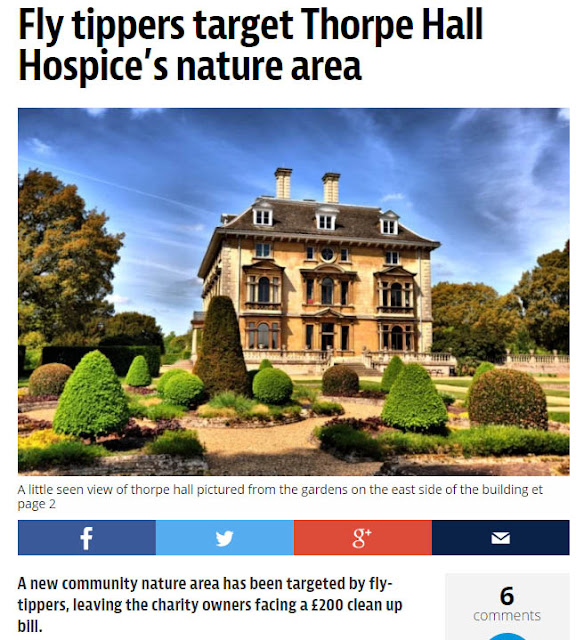 |
| The path along Ham Lane, where I had this lovely experience |
I had a lovely experience on my way to a meeting at Ferry Meadows this week.
As I walked down Ham Lane, every single person who passed me smiled and said 'Good morning'.
What's so special about that?
It's special because acknowledging one another really matters.
We are social creatures
A very long time ago, when we were all 'hunter gatherers' and had to forage for our food it was really difficult for us to survive by ourselves. We needed to search for food together, to build shelters and make clothes together, and to rely on each other for protection.
We live differently now, however, feeling that we are part of a community and feeling that others value us as individuals is still very important for our survival. Why? Because being acknowledged is vitally important for our mental and emotional wellbeing. In turn, our mental and emotional wellbeing is very important for our physical wellbeing.
 |
| We used to live like this. If we still did we might acknowledge one another a bit more. |
'By yourself' and 'lonely' are different things
More of us than ever before now live by ourselves, through either choice or necessity. I lived by myself for ten years and absolutely loved it. But key to doing well on my own was knowing that I was 'by myself' but not 'alone'. I knew my neighbours and I had friends so I felt supported and acknowledged in the world. Emotionally and mentally I felt well.
But many people struggle with the loneliness that can come with living alone, or don't live alone in the literal sense but feel lonely in the emotional sense. A simple 'hello' from an acquaintance or a total stranger can be the only human contact a person living by themselves has that day, or even that week.
A few years ago, when I was writing my book, I spent many days alone (I tend to work through the night and sleep through the day when I'm writing). I needed the social isolation but I also needed human contact. Sometimes, I'd think of an excuse to go to the corner shop just so I could have an interaction with another person.
We're all really busy, and it is of course true that some people don't want to be bothered with others when they are going about their daily business, and this is their right. But I would ask you to take up a challenge that I often set for myself. It's really simple.
 |
| Adults forget that smiling at one another is important. |
Smile, make eye contact, say 'hello'
When you're out and about, and someone is about to pass you in the street, smile, make eye contact, say 'hello'. We're social creatures and most people will return your greeting automatically. Others will be so surprised they won't react until you've passed by. Others will be shy or may experience social anxiety. They may not return or even acknowledge your greeting, but on the inside your simple acknowledgement will have made a difference. And of course there are other people who will just ignore you because they're grumpy, and that's alright too.
There's a bit of science to it.
When we greet someone (in a nice way) we trigger in that person and in ourselves a release of the chemical 'oxytocin'. This is a hormone that helps us to feel good about another person. In fact, the moment your start smiling, you're making yourself feel better. So if you're not a good mood on a particular day, the best thing to do to make yourself feel better is smile and say 'hello' to someone!
If you're the one receiving the greeting from someone else, smile, make eye contact and say 'hello' back to give yourself a boost of feel-good chemicals. This is a completely natural way to feel good and you may notice that you begin to feel better about yourself and more confident in yourself the more you do it.
Think about it: why do you love your favourite comedian? Because he or she makes you smile and smiling makes you feel good.
An act of giving
If your greeting is ignored, don't be disheartened. This isn't about rejection or failure. Your act of giving acknowledgement to another person is good for you. This is not just about your need to be acknowledged. Rather, it's an act of giving acknowledgement to another person that is hugely empowering and life-affirming for both parties.
On Christmas Eve, for example, I set myself the challenge of seeing how many people I can say 'Merry Christmas' to that I pass in the streets where I live (if they reply that's bonus points!).
We've become not very good at the simple act of acknowledgement but we can so easily put that right. You can tell how happy those people on Ham Lane made me feel because I'm still thinking about it (and writing about it!) two days later. I bet they have no idea of the positive power of their simple 'good morning'.
If you would like to help to make our community happier, stronger and safer, it all starts with 'hello'.










